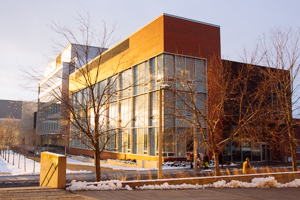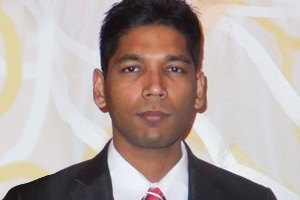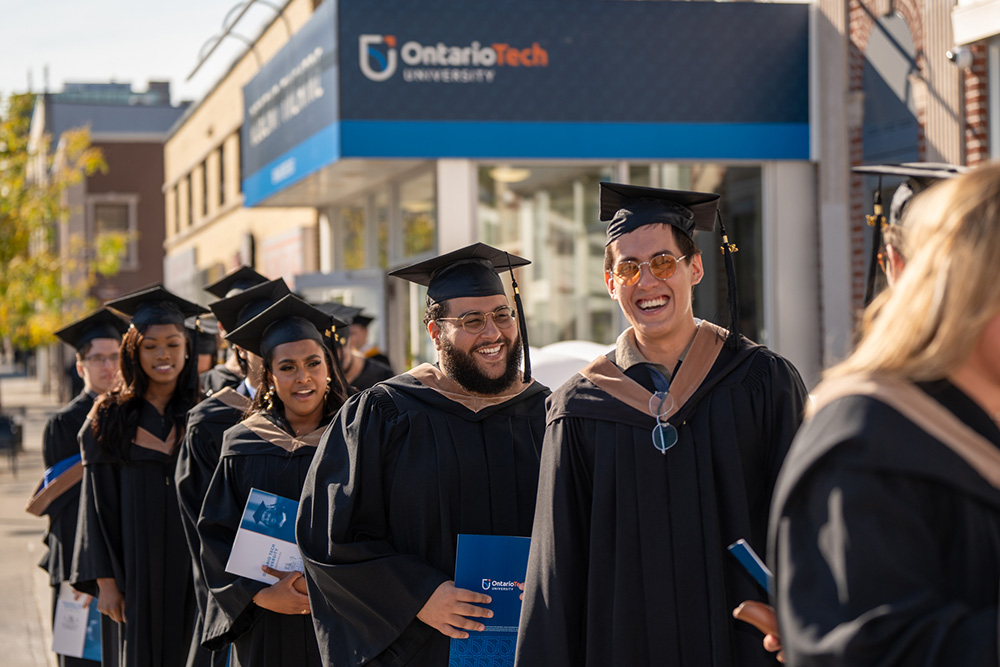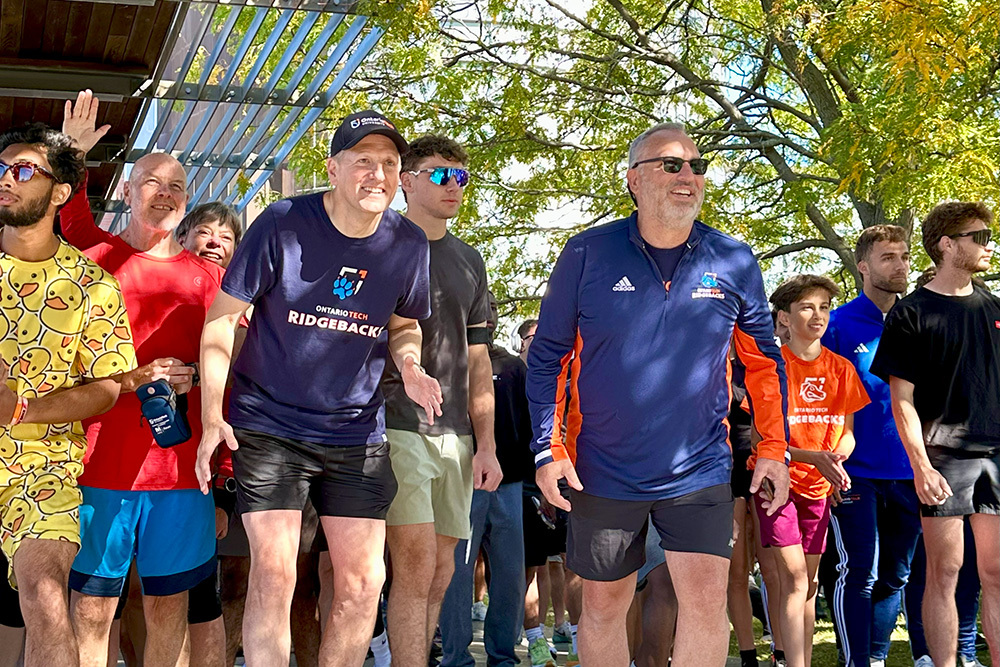Nine FEAS students shine at Honda Manufacturing
May 16, 2014

The University of Ontario Institute of Technology’s (UOIT) Faculty of Engineering and Applied Science (FEAS) has trained some of the most highly skilled engineers in Ontario. So when Honda of Canada Manufacturing opened 30 positions, it came as little surprise that UOIT students filled nearly one-third of those spots.
"These students are a shining example of the high-quality education the Faculty of Engineering and Applied Science provides," said Dr. Tarlochan Sidhu, Dean, FEAS. "University of Ontario Institute of Technology students strive to do their very best every day. This group of students are a testament to that fact, and are a constant reminder of the dedication and passion all our students have towards their programs."
Honda filled nine positions with UOIT students. Four graduating students - one Automotive Engineer, one Electrical Engineer and two Mechanical-Mechatronics Engineers - were offered permanent positions. The other five are internship students: one Automotive Engineer, one Electrical Engineer, two Mechanical Engineers and one Mechanical-Mechatronics Engineer.
Bachelor of Electrical Engineering student Jafor Khaledi will head to Honda as one of the four graduating students. He credits his success to his Capstone project supervisor, Dr. Min Dong, for providing him with guidance on improving his professionalism, as well as his technical and communication skills.

"My experience with the University of Ontario Institute of Technology not only prepared me for my career, but also for life outside my career," Khaledi said. "Through interactions with fellow students, professors and other faculty members, I improved my professional and analytical skills. The academic activities, as well as the variety of programming projects, enhanced my technical skills to evaluate, identify and solve real-life problems in an industrial environment."
In the next five years Khaledi plans on pursuing a career in the automotive manufacturing industry. That is why he has spent the last two years working as a co-op student in the field, and why he believes Honda will be a great opportunity for him to improve his leadership and professional skills.
"For Engineering students, it's really important to gain hands-on, technical experience," Khaledi said. "There is always huge competition for jobs. Even for Honda, we had to compete with students from the University of Toronto, the University of Waterloo, McMaster University, Ryerson University and some out-of-province universities. Employers like to hire people with prior industry experience because (they) will require less training."
Bill Donaldson, Senior Technical Staff, Technical Planning Department, Honda of Canada Manufacturing, said there was a combination of things that made the UOIT students stand out:
- The link to the automotive industry offered in some UOIT courses – especially the strong ties between the Mechatronics program and Honda’s technical requirements.
- The hands-on skills, leadership experience and business sense students gain through previous internships and/or individual and team projects
Donaldson added that the FEAS students were "technically strong students with a good practical application viewpoint."
Khaledi said he had two interviews with Honda, one at UOIT and the other at Honda's Alliston, Ontario plant. Most of the questions were about his previous experience and behaviour, while few of them had to do with his technical knowledge.
"During an interview within the manufacturing industry, it's essential to talk using industry terms," Khaledi explains. "The only way to learn those terms is to gain prior experience in a similar environment. All four new grads who got hired by Honda have, at minimum, 16 months of internship experience, mostly in the automotive industry. For most of the technical job positions, experience overcomes the GPA. I have been working as a co-op student since first year, which improved my skills and knowledge. From my experience, textbook knowledge can't help someone excel in an interview. I would recommend students look for volunteer jobs and internships because usually they don't require prior experience, and that's the only way to stay on top when competing for jobs."
Two of the internship students have been at Honda since February, while the other three, along with the graduate students, started in May.



